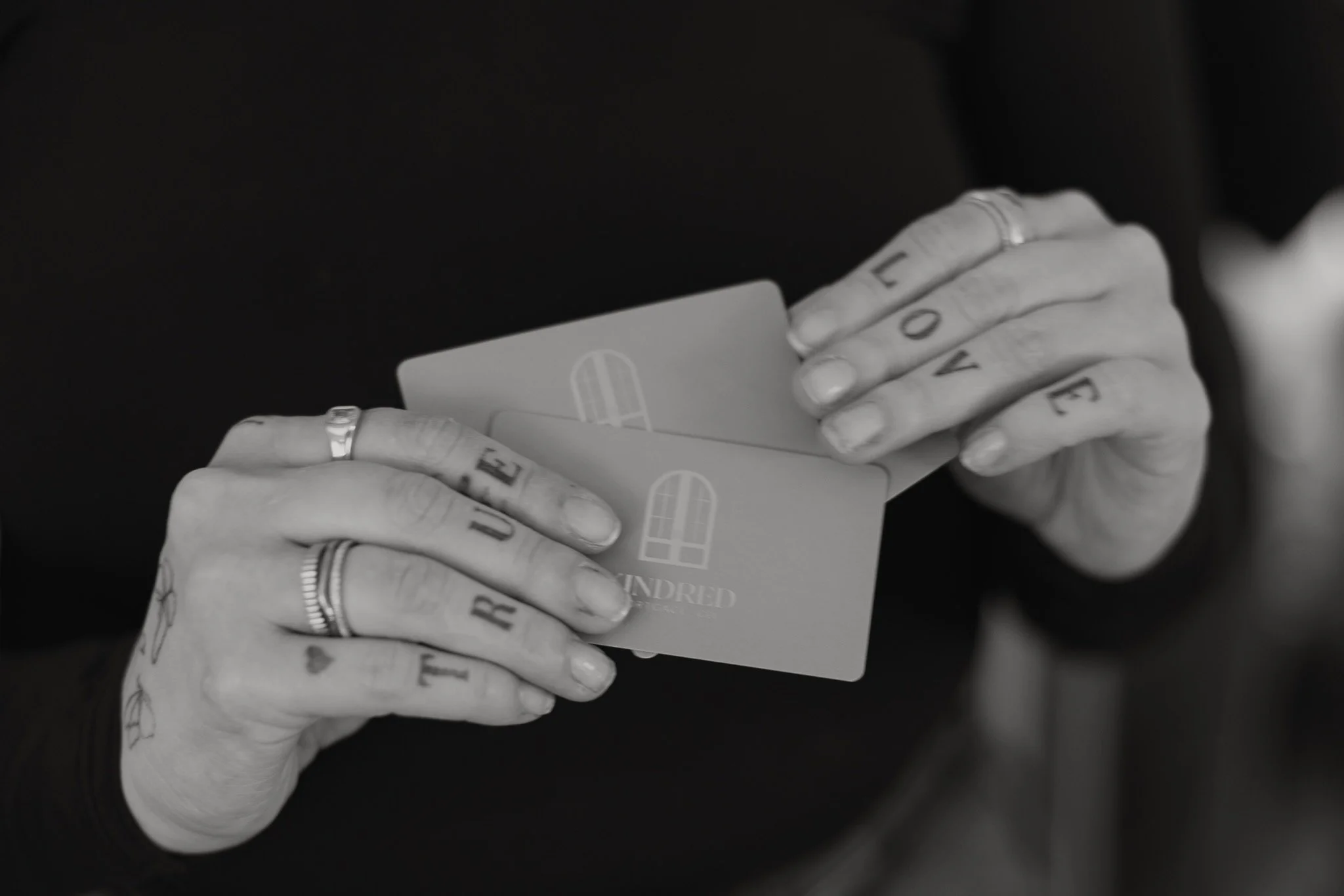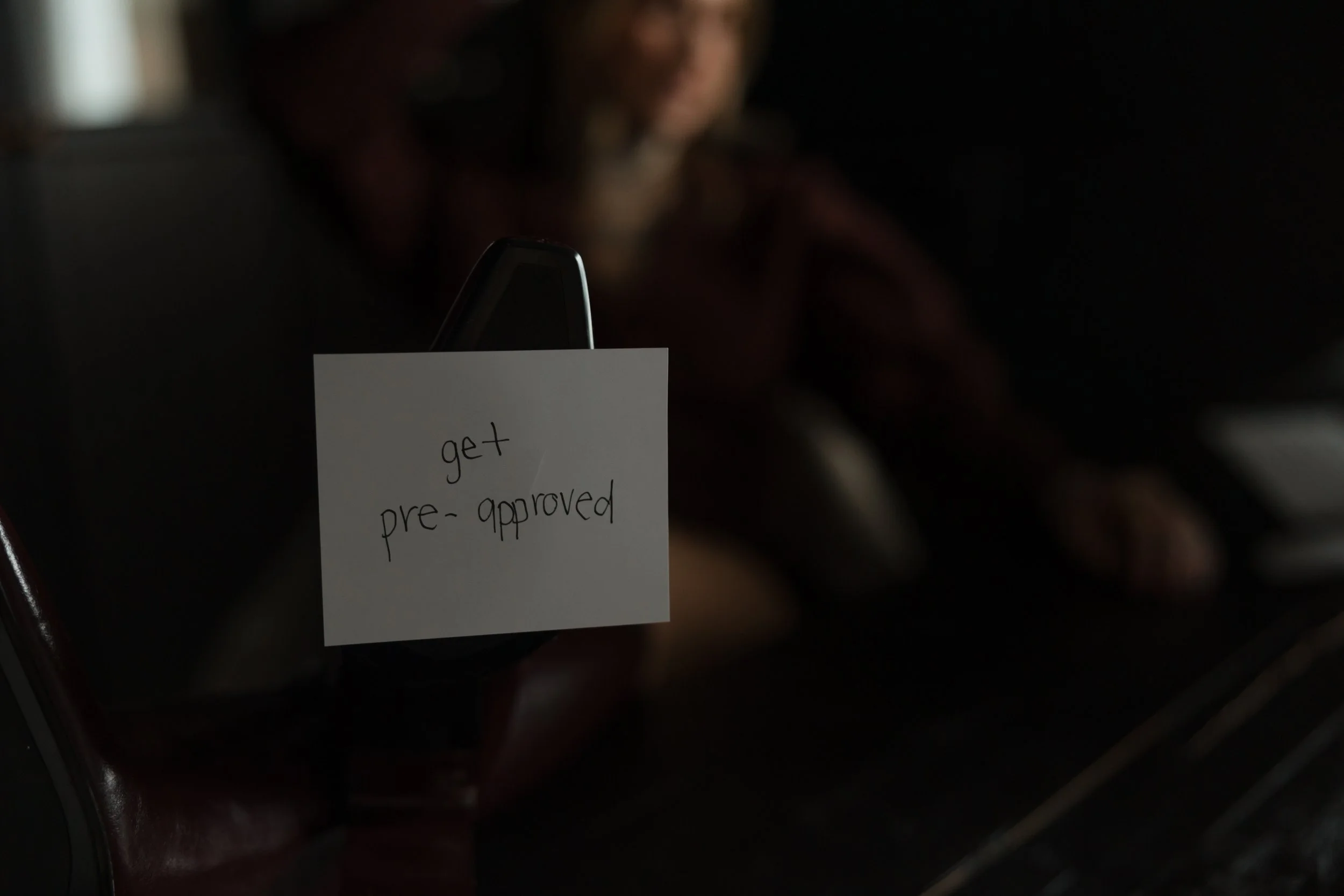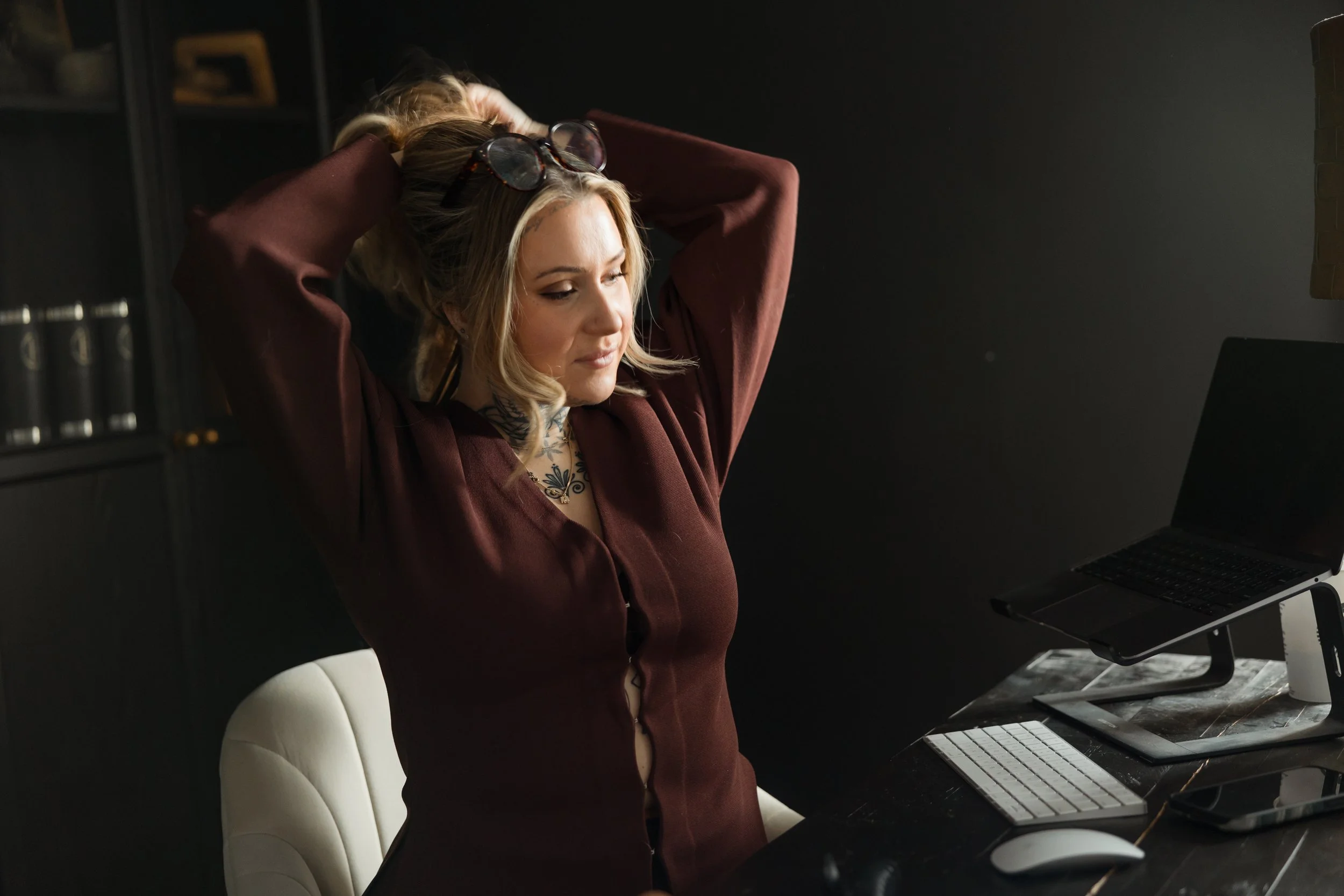Your First Home in Canada Starts Here
Homeownership Guide for New Canadians
Meet Jenna Hall
Your TMG Mortgage Professional
Buying a home in a new country can feel overwhelming — but that’s exactly why I’m here. I’m Jenna, a licensed mortgage professional with TMG The Mortgage Group. My goal is to make your journey to homeownership in Canada simple, transparent, and stress-free. I work with a wide range of lenders to find the best mortgage options for your unique story — because you deserve a home and a plan that truly fit you, not the other way around.
My clients become part of the #TMGfamily — and that means support long after you get the keys.
Your Path to Homeownership
Every newcomer’s journey looks a little different — but the goal is always the same: feeling confident and at home in Canada. I’ll guide you through every step, from building your credit and gathering documents to securing the right mortgage and connecting you with trusted professionals to make your move stress-free.

The Home Buying Journey — What to Expect
Buying your first home in Canada is exciting — but it’s also a big step that works best when guided by professionals who do this every day. I know it’s easy to turn to friends or family for advice, but every mortgage story is different — what worked for them might not work for you.
Here’s how I make the process simple, clear, and stress-free:
-
We’ll start with a scheduled discovery call — set for a time that works best for everyone involved. During this call, we’ll talk through your goals, timeline, and what you’re hoping to achieve with your first home in Canada. From there, I’ll guide you through a secure online application so I can assess your eligibility and start mapping out the best mortgage options for your situation.
-
Once your application is received, I’ll set you up on my secure online portal called Hurricane to collect all the documents needed for your pre-approval. Please note — your file won’t be reviewed until all required documents are uploaded to the portal.
Once everything is received, I typically recommend 24–48 business hours for your pre-approval to be reviewed and finalized. At that point, we’ll secure a rate hold for 120 days with a specific lender — giving you time to shop confidently.
When you find the right property, I’ll review the options again to ensure we’re still with the best lender for your situation — because my job doesn’t stop at the first approval; it’s about finding the best fit all the way through.
-
Once your pre-approval is complete, you’ll have a clear budget and rate hold in place — giving you confidence as you start your home search.
At this stage, I’ll need to know who your realtor is so that we can all stay connected and work together throughout the process. If you don’t already have a realtor, I’ll happily connect you with one of my trusted partners. Working with a partner realtor helps keep communication seamless between everyone involved — ensuring no details are missed and your experience stays smooth from start to finish.
Your pre-approval gives you a 120-day rate hold, but that doesn’t mean we stop there. When you find a property you love, I’ll review all lender options again to make sure you’re still getting the best fit based on current rates and your specific situation.
💡 Buying a home is always easier when your mortgage professional and realtor work as a team — it keeps things efficient, accurate, and stress-free for you.
-
Once you’ve found your home, this is where everything comes together — and timing matters. During the condition period, my goal is to have your file broker complete — meaning all required documents, lender conditions, and verifications are finalized before the condition removal date. This ensures there are no surprises and we can move smoothly to final approval.
I’ll also gather lawyer quotes on your behalf so we can compare pricing and make sure you’re getting the best possible value for your closing costs. Once your lawyer is selected, I’ll coordinate directly with them and the lender to handle all the final details — including instructions, payments, and insurance confirmations — so nothing gets missed.
By this stage, you’ll have full clarity on your next steps, your final mortgage details, and your closing timeline — making your move-in day one to look forward to, not stress over.
💡 Staying organized during the condition period keeps things moving quickly and avoids last-minute delays. My job is to make sure every detail is complete before we hit “final approval.”
-
Congratulations — you’re officially a homeowner in Canada! Once your mortgage funds and the final paperwork is complete, your realtor will be the one to provide you with the keys on possession day.
We typically recommend scheduling possession for the afternoon, as this gives your lawyer time in the morning to organize the transfer of funds, finalize registration, and confirm everything with the lender. This small detail helps avoid unnecessary moving delays and ensures a smooth, stress-free transition into your new home.
Once you’ve got your keys in hand, the celebrating begins — but my support doesn’t end there. I’ll continue to check in and be your go-to mortgage professional for renewals, refinances, or future moves down the road.
💡 Pro tip: Possession day runs much smoother when your lawyer, realtor, and mortgage professional stay in close contact — teamwork is everything when it comes to a seamless closing.

Understanding What Really Matters
When it comes to mortgages, many newcomers focus only on the interest rate — but rate alone doesn’t tell the full story. The lowest rate can sometimes be the most expensive option in the long run, depending on the lender’s terms, penalty structure, or flexibility to make changes later.
As a mortgage professional, my goal isn’t to “beat the bank” — it’s to find the right mortgage for you. I work with a wide range of lenders across Canada, comparing options so you don’t need to visit multiple banks or brokers. This saves you time, protects your credit, and ensures your approval is built for the long term — not just the lowest rate today.
🏡 When you work with me, you get one application, one credit pull, and access to dozens of lenders — all with your best interest in mind.
-
The time (usually 10 business days) after your offer is accepted to finalize financing and meet all lender conditions before removing conditions.
-
The day you officially get your keys! Your realtor provides them — usually in the afternoon — so your lawyer has time in the morning to complete funding and avoid moving delays.
-
A form used to make official changes to your purchase agreement — such as adjusting the possession date, condition removal date, or other key terms in your offer.
-
Legal and administrative fees your lawyer charges to complete the purchase — including title searches, registration, and disbursements. I recommend budgeting 1.5% of the purchase price for these costs; however, in Saskatchewan, these fees often come in lower. That’s why I gather lawyer quotes for you once everything is approved and finalized — to make sure you’re getting the best pricing possible.
-
Required when your down payment is less than 20%. This insurance protects the lender in case of default and allows buyers to purchase with a smaller down payment while still accessing competitive rates.
-
A document authorizing me, your licensed mortgage professional, to represent you and negotiate with lenders on your behalf.
Mortgage Decisions
-
Fixed-rate mortgages offer homeowners the security that comes with knowing your mortgage rate and payment will remain unchanged. There is no need to worry about interest rate changes during the term of the mortgage - simply “set it and forget it.” Variable-rate mortgages are often discussed by brokers due to their flexibility and the ability to help mitigate penalties. With a variable-rate mortgage, you can benefit from lower rates if your lender’s prime lending rate decreases, making it a great option for those comfortable with taking on more risk or uncertain about how long they plan to hold the property. However, it’s important to align the term of the mortgage with your future plans, and locking into a fixed interest rate can provide peace of mind and reduce the stress of market fluctuations. Ultimately, the best mortgage option depends on your unique needs and preferences.
-
You should also think about the cost to get out of your mortgage early if you want to sell or refinance. Your life circumstances can change and you may need to break your mortgage i.e. job transfer, illness, or divorce. The penalty to break a variable mortgage is less expensive than a fixed-rate mortgage, but that doesn’t mean you shouldn’t take a fixed rate, it just means that you should be aware of the potential fees and penalties that come with your mortgage and consider what your future may hold. If you think you may move before the term of your mortgage is up, you should look at having the ability to port your mortgage to the new property. This is a way to avoid paying the penalty to break your mortgage, but not all lenders allow for it. Some ports have quirks and nuances that may make it challenging to navigate when trying to buy a new home.
-
You can make your payments monthly, bi-weekly, or weekly. If you want to pay off your mortgage faster and save thousands in interest, consider an accelerated payment option – accelerated weekly and accelerated bi-weekly. This type of payment has you making roughly one extra payment a year and is a good option without putting too much pressure on your budget. In addition to accelerated payments, another way to become mortgage free sooner is to use the prepayment options available to you i.e. how much of a lump sum payment can you make and increase your payments by each year. This will be outlined in your mortgage contract but it is an important mortgage feature and may affect which mortgage you select.
-
Some buyers prefer to add the costs of initial renovations into their mortgage, instead of racking up credit card bills or selling investments to pay for those renovations known as a “purchase plus improvements” mortgage, this type of mortgage covers the sale price of the home plus any renovations that would increase the value of the property, up to a certain dollar amount.
When adding improvements to your mortgage you will need to gather your quotes within your “condition removal deadline” and your down payment will be based on the total improved value. Funds are held back at the law office until the job is 100% completed and normally a appraisal is required which is an additional cost to the borrower.
-
Amortization is the length of time you take to repay your mortgage. Most insured mortgages require a 25-year amortization, but first-time home buyers can now choose a 30-year amortization when purchasing a newly built home, even with less than 20% down.
A 30-year option lowers your monthly payments and creates more room in your budget. If you put 20% or more down, you can also access a 30-year amortization on any property type.

It’s not all about
the rate
Understanding Mortgage Default Insurance
When you make a down payment between 5% and 20%, your mortgage must be default insured. This is known as mortgage default insurance, and it’s in place to protect the lender in case a borrower is unable to make their payments.
This insurance allows buyers — especially newcomers to Canada — to purchase a home sooner, even without the full 20% down payment. The premium for this insurance is added directly to your mortgage amount, which slightly increases your total mortgage and monthly payment.
Here’s How It Works
If you buy a home for $500,000 and put 5% down, the required insurance premium (about 4% of the mortgage amount) adds roughly $20,000 to your total mortgage — bringing it to $520,000.
On a $900,000 home with 5% down, the premium would be around $36,000, bringing the total mortgage to $936,000.
If you have 20% or more down, you do not need default insurance — because the larger down payment provides enough equity to protect the lender.
What This Means for You
If you’re a newcomer or first-time buyer, these updates can make homeownership more achievable. A 30-year amortization means your payments are spread out over a longer period, making them more affordable month-to-month — though you’ll pay more interest over time.
All other insured mortgages continue to have a maximum 25-year amortization, which helps you build equity faster.
As your mortgage professional, I’ll walk you through your options to determine whether an insured or uninsured mortgage is the best fit for your situation — balancing affordability, qualification, and long-term goals.
New Updates for 2025
Insured mortgages are now available for homes priced up to $1.5 million, an increase from the previous $1 million limit.
First-time home buyers purchasing can now access a 30-year amortization on insured mortgages.
Insured vs. Uninsured Mortgages — What’s the Difference?
| Feature | Insured Mortgage | Uninsured Mortgage |
|---|---|---|
| Down Payment Required | 5%–19.99% | 20% or more |
| Default Insurance | Required — premium added to mortgage | Not required |
| Maximum Purchase Price | Up to $1.5 million | No maximum (depends on qualification) |
| Amortization (Length of Mortgage) | 25 years (30 years for first-time buyers on new builds) | Up to 30 years |
| Interest Rates | Slightly lower, as risk is insured | Slightly higher, as risk is not insured |
| Equity Growth | Slower at first due to smaller down payment | Faster due to larger upfront equity |
| Who It’s Best For | First-time or newcomer buyers entering the market with a smaller down payment | Buyers with established savings or equity from a previous home |
💡 Jenna’s Tip: If you’re new to Canada or buying your first home, an insured mortgage can help you get started sooner — and we’ll review all options to find your best fit.
Want to play around with different down payments and see how the default insurance premium impacts your mortgage? Use Sagen’s official Premium Calculator to test scenarios, compare results and make informed decisions.
With the right plan, buying your first home in Canada becomes not just possible — but achievable.
Where You Should Not Allow Credit Pulls
A major warning for newcomers:
Car dealerships often submit your application to multiple lenders at once until someone approves it.
This can mean 5, 10, or even 15 credit pulls within minutes, which can seriously lower your score and affect your mortgage qualification.
This is why many newcomers are shocked when their credit score drops suddenly — and why I recommend speaking with me before financing a vehicle.
How a Car Loan Changes Your Mortgage Approval
| Scenario | Estimated Mortgage Approval |
|---|---|
| ✔ Without a Car Loan | $400,000 – $425,000 |
| ✘ With a $430–$500/Month Car Loan | $300,000 – $325,000 |
A single car payment of $430–$500/month can reduce your mortgage pre-approval by
$75,000–$125,000+ depending on income and debt ratios.
Understanding Credit Expectations in Canada
When you’re new to Canada, lenders aren’t just checking whether you have credit — they’re looking closely at how you manage it. Even with limited history, strong credit behaviour can make a big difference in your mortgage approval.
What Lenders Look For
New-to-Canada credit guidelines focus heavily on:
No missed payments — even one late payment can lower your score quickly.
No over-limit balances — going over your credit limit is viewed as high-risk.
No signs of overspending — consistently carrying high balances can signal instability.
Steady, responsible usage — keeping balances under 30% of your limit shows control.
These habits help lenders feel confident that you can manage a mortgage payment.
Important: Be Careful With Credit Checks
When you first move to Canada, you’ll often hear people say, “Don’t let anyone pull your credit.”
That isn’t quite true — the right people should pull your credit, such as:
A licensed mortgage professional (like me)
A bank you're opening an account with
A credit card provider you chose
Foreign-Buyer Ban & Eligibility for Newcomers
Canada currently has a federal foreign-buyer ban that restricts some non-Canadians from purchasing residential property. If you’re new to Canada, here’s what you need to know before moving forward:
If You Have a Valid Work Permit
You can purchase a home in Canada if:
Your work permit (or authorization to work) has at least 183 days of validity remaining at the time you take possession.
You have not previously purchased a residential property under the ban.
If You Are a Permanent Resident (PR)
Permanent residents are not restricted by the ban.
You are treated the same as a Canadian citizen for property purchases.
Credit Requirements to Proceed
To move forward with your mortgage approval, you must either:
Have Canadian credit established, or
Have been in Canada for at least 12 months and qualify under the alternative credit program (such as verified rent, utilities, or bank statements, depending on down payment).
Once these criteria are met, you can continue through the mortgage process just like any other borrower.
For full details on the federal foreign-buyer policy, visit:
Down Payment Requirements
When buying a home in Canada, every dollar of your down payment must be fully verified. Lenders and default insurers require a complete paper trail to confirm the funds are legitimate, traceable, and truly yours. This is one of the most important parts of the approval process for New to Canada clients.
Mandatory 90-Day History
For all down payments, lenders must see:
A full 90-day history of the funds
In a Canadian bank account
Showing your name and account number on every statement
Any large deposits or transfers within this period must be fully explained and documented.
If the Down Payment Is Already in a Canadian Account
You will need to show three full months of bank statements confirming the money was gradually saved or already held.
To avoid delays, keep your down payment in a separate savings account rather than a day-to-day spending account.
Unnecessary transfers between accounts create additional paperwork and slow down the approval process.
If the Down Payment Is From RRSPs or FHSA
If you plan to use RRSP or FHSA savings, be prepared to provide:
The quarterly statement
Proof of redemption or withdrawal
Proof the funds were deposited into your Canadian bank account
The complete paper trail showing where the funds originated
If the Down Payment Is Coming From Outside Canada
If your savings are held abroad, you will need to provide:
90 days of statements from the foreign account
Proof of the wire transfer into Canada
Proof of deposit in your Canadian account
Lenders must see the full movement of funds from source, to foreign account, through the transfer, and into Canada.
If the Down Payment Is a Gift (Canadian or Overseas)
Gifted funds must follow strict verification rules and require a lender-specific gift letter, which I prepare during the approval process.
You will need:
The giftor’s full name, address, phone number, and relationship
A complete 90-day history of the giftor’s account showing where the funds came from
Proof of transfer to your Canadian account
Proof that the funds were received in your account
For gifts from overseas, lenders often require additional compliance steps. Because of this, financing conditions should allow a minimum of 10 business days.
Gifted funds must be in your Canadian account at least 15 business days prior to possession.
Lenders may also ask how the giftor accumulated the funds (employment income, savings, inheritance, etc.), so it’s important to be prepared.
Important Reminder
To avoid delays, keep your down payment and closing cost funds in one dedicated savings account and avoid moving the funds around unnecessarily.
Every transfer or large deposit will trigger the need for additional documentation.

Understanding Each Professional’s Role in Your Home-Buying Journey
When you’re new to Canada, it can be confusing to understand who does what in the home-buying process. Clear expectations help the entire experience run smoothly and avoid delays.
My Role as Your Mortgage Professional
- Reviewing your application and documentation to determine qualification.
- Securing your pre-approval and monitoring your rate hold.
- Selecting the lender that best matches your goals and file structure.
- Ensuring all lender conditions are met during the condition period.
- Coordinating directly with your realtor and lawyer.
- Completing the full verification process for down payment, income, and credit.
- Providing guidance at every stage to ensure nothing is missed.
I do not select properties, negotiate prices, review purchase contracts, or provide legal advice.
Your Realtor’s Role
- Helping you find homes that fit your criteria and budget.
- Providing comparable sales and market information.
- Drafting and submitting offers.
- Negotiating price, terms, and possession dates.
- Requesting and reviewing property documents (disclosures, condo documents, etc.).
- Communicating key dates such as condition deadlines and possession.
- Collaborating with me to ensure the financing process aligns with the offer.
Realtors do not handle financing or legal processing.
Your Real Estate Lawyer’s Role
- Reviewing the purchase agreement, title, and all legal documentation.
- Receiving and reviewing mortgage instructions from the lender.
- Preparing all legal mortgage documents for you to sign.
- Handling the transfer of funds for closing.
- Registering the property in your name.
- Communicating with the seller’s lawyer to finalize possession.
- Confirming when keys are released to your realtor on possession day.
Lawyers do not assist with financing approval or property searches; their role begins once you have an accepted offer and financing.
Why These Roles Matter
Each professional has a specific responsibility, and when everyone remains within their role, the process is faster, smoother, and more accurate. Clear communication between the mortgage professional, realtor, and lawyer ensures deadlines are met and that you feel supported from start to finish.

Ready to Get Started?
Let’s connect and walk through the next steps toward buying your first home in Canada. I’ll guide you through the process so everything is set up properly from the start.





